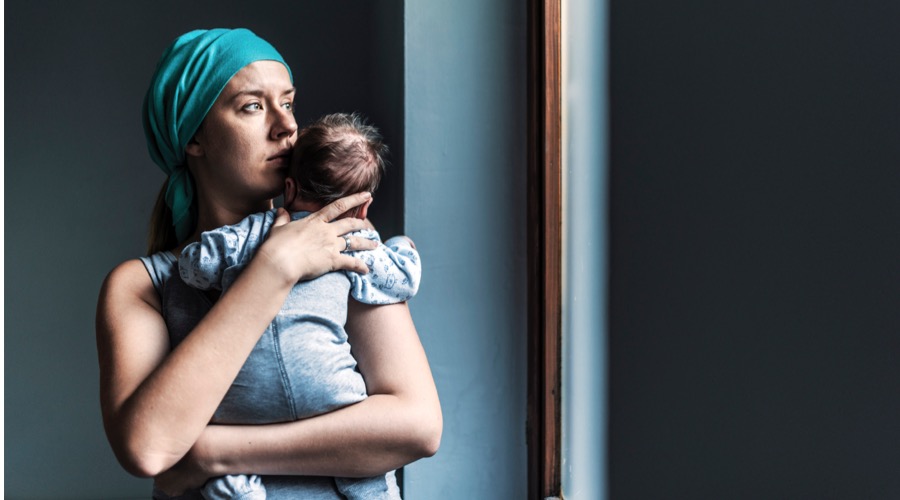Supporting women's health
In OTC
Follow this topic
Bookmark
Record learning outcomes

In March 2019, the House of Commons published a briefing paper entitled Women And The Economy. It revealed that 15.3 million women in the UK aged 16 years and over were in employment in October to December 2018. According to the Mental Health Foundation, women in full-time employment are nearly twice as likely to have a common mental health problem as full-time employed men.
A poor work-life balance is one of the biggest contributors to increased stress in women and various social factors, such as being guardians of family health and/or carers, put them at greater risk. However, women’s readiness to talk about their feelings and their strong social networks may help to provide some protection.
Rising stress levels can adversely affect women’s physical wellbeing as well as their mental health, raising the risk of heart disease and musculoskeletal problems, for example. Many women work in health and social work, retail and education – jobs that often require repetitive physical work, prolonged computer work, which can cause eye strain or posture problems, and longer periods of standing and/or contact with the public, which leads to emotional stress.
Research conducted by Nexium Control found that 28 per cent of women have suffered from heartburn at work, 10 per cent have experienced heartburn during a meeting and 7 per cent have had to call in sick because of their symptoms.
Community pharmacists can help to spot physical signs of rising stress and tension in female customers before these become a chronic condition. Mel Crate, founding director of Luminate, which provides workshops and coaching on improving mental health in the workplace, says that women may visit their GP with what seems like a minor physical symptom when there’s actually an underlying mental health problem. “Physical symptoms include frequent headaches and migraines, minor illnesses, such as susceptibility to colds, lethargy, skin conditions, weight gain or weight loss, digestive problems, muscle tension and feeling run down,” she says.
Everyone responds to stress in different ways... Mindfulness, yoga and any type of exercise may help
If women are experiencing a stressful time in the workplace, they need to find ways to counteract any harmful effects. “Everyone responds to stress in different ways and it’s important that women receive the right support,” says Ms Crate. “Mindfulness, yoga and any type of exercise may help. Women may benefit from psychotherapy or cognitive behavioural therapy and could also try breathing exercises.”
Tampon tax and period poverty
In Britain, the tampon tax debate continues to swirl around parliament. Sanitary products are still classified as luxury, “non-essential” goods. In 2015, the annual tampon tax disbursement was introduced with the creation of a £15 million annual Tampon Tax Fund to support women’s charities. However, according to the Women’s Resource Centre, a national umbrella organisation for the women’s sector in the UK, most of the money has been awarded to charities that aren’t focused on women’s issues, and local women’s charities are missing out.
Despite the ongoing tampon tax discussions, there has been movement on combating period poverty in recent months. In April 2019, the Department of Education announced that free sanitary products would be offered to girls in all primary schools in England from early next year. The Government had already committed to provide access to free sanitary products in England’s secondary schools and colleges. In March 2019, the Government also announced that from summer 2019, all women and girls in NHS hospitals would be given, on request, free appropriate sanitary products.
“It would be convenient if you could plan your period around your life and around your treatment, but sadly this isn’t the case,” says Mita Dhullipala, BMA medical students committee co-chair. “Having sanitary products easily available in hospitals would save patients the embarrassment of being caught out at a time that is already stressful enough. Period supplies are essential, but they can be expensive. It is unacceptable that there are still people who cannot access them, usually those who are vulnerable or on low incomes. Many resort to using toilet paper, scraps of fabric, or sometimes nothing at all. Period poverty can be stopped by making sure these products are available to those who can’t afford them.”
In December 2018, the British Medical Association launched its report on Addressing Unmet Needs In Women’s Health. Women make up 47 per cent of the working population and provide most informal, unpaid care for children, sick or frail older relatives, and increasingly both. Although women are more likely to come into contact with health services than men, they are more likely to miss appointments due to their caring responsibilities.
A Public Health England survey in June 2018 revealed that 31 per cent of women experience severe reproductive health problems, but fewer than half of them seek help. The survey found that 35 per cent of women have experienced heavy menstrual bleeding, which can be associated with higher unemployment and absence from work. Many women conceal their gynaecological symptoms from work colleagues. The women in the survey said they would like reproductive health to be normalised so that any issues could be discussed openly and self-managed where possible.
Dr Philippa Kaye, a GP with a specific interest in women’s health, agrees that society needs to be better at talking about gynaecological issues. “For women working, for example in jobs where they can’t go to the toilet as needed, issues such as heavy periods can be extremely difficult,” she says. “I would recommend women speak to a line manager or HR department about any issues to see if any changes can be made. However, if they have a health issue that is affecting their ability to function, and therefore work, they should see their doctor.”
Stigma and myths
The normalisation of periods is essential to remove the stigma and myths surrounding the female body. Several period or hormone-related books for women are being published this year, including Hormonal by Eleanor Morgan, Period Power by Maisie Hill and Period. by Emma Barnett, which has thrust these topics into the media spotlight.
Tracie Miles, Ask Eve cancer information nurse at The Eve Appeal, says that by talking about intimate health, women will find it easier to recognise when something isn’t normal. “Pharmacies could stock leaflets about gynaecological health to encourage conversations and raise awareness,” she says. “Some women may be too embarrassed to come to the pharmacy counter to ask for advice. If a woman is picking up thrush treatments or vaginal moisturisers and then putting the product down, or is loitering around the intimate health section, pharmacy staff could wander across and quietly ask if she needs any help.”
Some women may be too embarrassed to come to the pharmacy counter to ask for advice
Some women’s health topics are gradually becoming less taboo. In May 2019, lubricant brand Sylk launched Masturbation Month in a bid to normalise female sexuality. Although Sylk can be used for vaginal dryness (associated with the menopause, pregnancy, depression and cancer), it can also be used as a sex aid, during cervical examinations and with pelvic floor devices. According to Canesten, one of the main ways to gain a better understanding of intimate health is to ensure a correct diagnosis – thrush and bacterial vaginosis, in particular, are often confused with one another.
Dr Ellie Cannon, GP and media commentator, says it’s important that pharmacists feel comfortable discussing any issues related to vaginal bleeding, vaginal discharge and pelvic pain. “The key issue is that there may be significant symptoms where a delayed diagnosis can be very debilitating,” she says. “Not just involving cancer, but other conditions, such as endometriosis, which can affect work, relationships and mental health. Women trust pharmacists, so may go there for advice initially rather than to their GP.”
Sanitary product usage
Leading sanitary protection brands, such as Always, Bodyform and Lil-Lets, are taking steps to educate young girls about periods, to reduce stigma and help build up customer loyalty. Although brands continue to dominate sanitary protection, as trust is an important issue, private label is growing as women seek cost-effective solutions.
Mintel’s UK Feminine Hygiene And Sanitary Protection Products report in January 2019 revealed that disposable sanitary pads remain more popular than tampons and the gap has widened over the past year. To some extent, this may be linked to the cost of sanitary protection products – 45 per cent of menstruating women saying that price dictates what format they buy.
According to a Euromonitor International report, Sanitary Protection In The United Kingdom, in March 2019, women having lighter periods (due to the rising use of the contraceptive pill and long-term contraceptives) has had a positive impact on panty liners and slim, thin and ultra-thin towels. However, at the other end of the market, there are women trying to deal with heavier periods and leakage. In September 2018, Always launched its Platinum range with a highly absorbent leak barrier at the sides and an enhanced, more absorbent core.
Varied needs
As with any other category, women vary in their needs and preferences. “Some women will be sensitive to certain sanitary products, while others find that the hormonal changes related to the menstrual cycle trigger monthly episodes of thrush,” says Dr Kaye. “All-cotton products, although unlikely to cause irritation, may not be as absorbent and there may be skin problems related to constant moisture. Some women prefer to use a product such as a menstrual cup for these reasons.”
Increased awareness and concern over single-use plastics means reusable products are gradually showing growth and steering customers away from traditional sanitary protection. According to the Euromonitor International report, there is increasing demand for organic products and more sustainable and cost-effective reusable products, such as menstrual cups, which can last up to 10 years, are also gaining momentum.
Hey Girls manufactures environmentally friendly plastic-free sanitary products – pads, tampons, cloth pads and menstrual cups – and tackles period poverty in the UK with a buy one, give one policy. The Scottish social enterprise also delivers menstrual health education sessions. “We have recently launched a sustainable applicator tampon made from sugar cane,” says Molly Brown, education programme manager at Hey Girls. “For every product sold, one is donated to a girl or woman in need. Our products are already available from some supermarkets, but we would be interested in expanding into community pharmacies.”
|
|
|
| “Many women find it embarrassing to talk about intimate health issues. We give them the option of talking to a female member of staff in the consultation area. The main queries are about thrush, cystitis and vaginal dryness. And more women are asking about menopause symptoms. We sell a natural remedy based on mushroom extract, which is popular. Other good sellers include Canesten, Cystopurin, the BioCare range and a cranberry extract supplement. When we sell a remedy such as Canesten, we recommend a probiotic too. Site your women’s health section in a prominent place, but not right by the till.” | “Women’s health ranges from contraception, period pain, menopause and fertility to family planning. Products that sell well are Canesten, Clearblue pregnancy tests and Bio-Kult Candéa. We also keep the Pukka range of women’s supplements, which are popular because they are organic and gluten-free. I’ve seen an increase in women coming into the pharmacy asking for health advice. Consultations can be carried out in our private room. I think pharmacy can do better in this category. One of the ways of growing this category is ensuring staff are up to date with their training on the different products we stock.” | “Women in general are more open and willing to seek help for health-related issues, so this is a vital category. Typical queries include bladder weakness, health supplements, thrush, pregnancy testing kits, hormone-related insomnia, menopause symptoms, weight loss and pain relief products. TENA products are among our best sellers – we have an information stand with samples close by, which allows easy access to product information. Additionally, our weight loss programme, which includes Lipotrim, is a huge success. I believe this category is extremely important as we can provide suitable products and expert advice.” |

 Sarina Mughal
Sarina Mughal Yolanda Kong
Yolanda Kong Yasmeen Afsar
Yasmeen Afsar